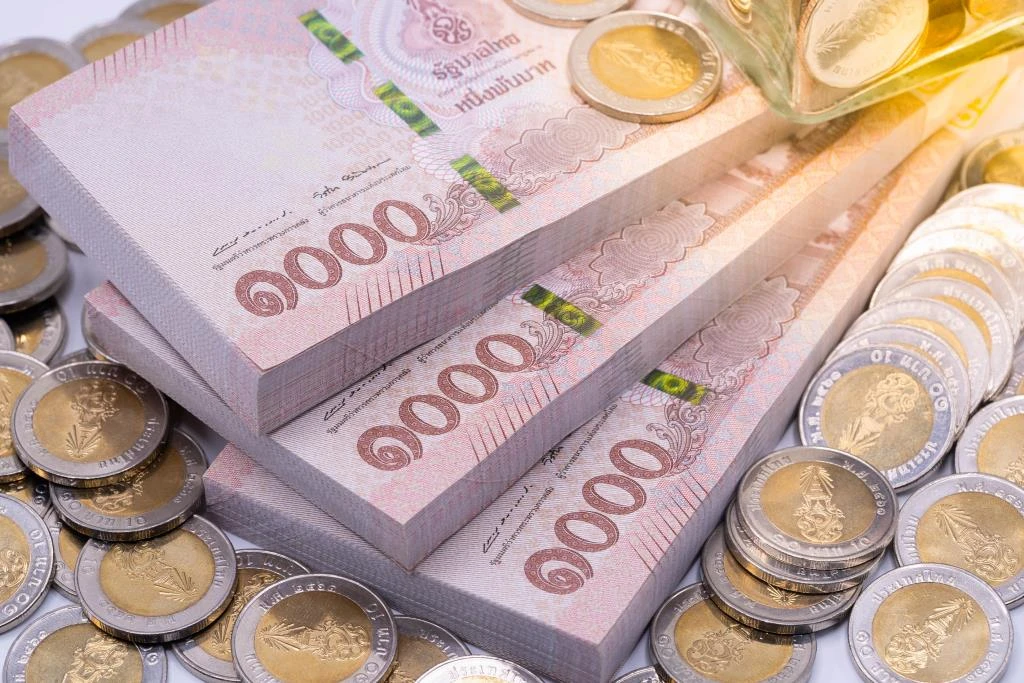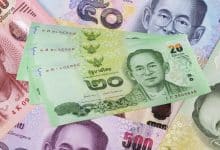Thai baht may appreciate to 35.30 per dollar amid BoJ rate hike

The Thai baht could experience further appreciation to 35.30 per US dollar in the short term, following a four-month high of 35.72 reached early yesterday.
Political instability and deteriorating fiscal conditions due to the government’s populist policies, however, may hinder a significant rebound of the Thai currency.
Asian currencies, including the baht, surged after the Bank of Japan (BoJ) raised its interest rates to approximately 0.25% and announced plans to taper its extensive bond-buying programme. The yen initially rallied by 0.8% to a more than three-month high of 151.58 per dollar following the BoJ announcement but later fell back to 153.25.
By noon yesterday, the Thai currency traded at 35.72 baht to the US dollar, compared to the previous day’s close of 35.99, according to Kanjana Chockpisansin, head of research for the banking and financial sector at Kasikorn Research Centre.
“The baht gained in line with regional peers due to signs of monetary policy tightening by the BoJ, surging gold prices, and weakened sentiment of the dollar ahead of the Federal Reserve meeting this week.
“If the US central bank doesn’t send any clear signal about a widely expected rate cut in September, the baht could possibly strengthen further to 35.30 to the dollar this round.”
Thai baht
BMI, a unit of Fitch Solutions, predicts the baht will reach 35.00 against the greenback by the end of the year, driven by the anticipated start of an easing cycle by the US central bank in September.
“With the 450-billion-baht (US$12.7 billion) digital cash handout just around the corner, we think that the Bank of Thailand will now want to assess its full inflationary impact before embarking on any rate cuts. As such, we think that policy easing will only commence early next year.”
This scenario suggests that interest rate differentials will temporarily favour Thailand, providing some support to the baht, BMI added
“However, the baht rebound will lag behind many of its regional peers. Political instability and a deteriorating fiscal position will limit any considerable appreciatory pressures on the currency.”
BMI anticipates a wider fiscal budget deficit in the coming years due to the Pheu Thai party’s history of implementing populist policies. A more urgent concern is government debt, which is projected to rise to an estimated 64.2% of GDP by 2026, nearing the 70% limit set by lawmakers, reported Bangkok Post.
“Investor confidence will be shaken if the debt level continues to increase, leading to significant capital outflows. Beyond the short-term horizon, we believe that the baht will remain on a gradual depreciatory trend.”
Latest Thailand News
Follow The Thaiger on Google News:


























